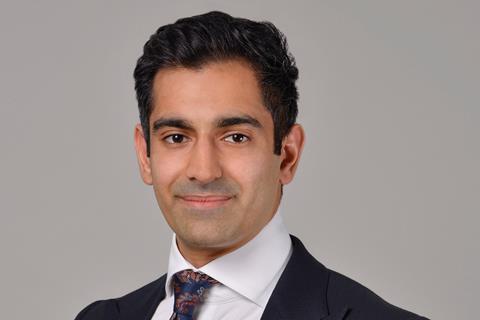
I sampled a career in law before I went to university by applying for an internship at Pinsent Masons. I (naively) decided that moving 300 miles away to Leeds aged 17 would not be difficult, and convinced myself that working in a law firm would be a good way to learn about how the world worked. Law struck me as being central to ‘positive’ business relationships, and also a mechanism for resolution in ‘negative’ circumstances. The team I worked with during my internship set the tone for my career and gave me the freedom to learn without expectations.
In 2012, while at university, I joined the Royal Air Force Reserves and underwent flying and combat training for three years. This gave me different skills from those developed in the world of law. The RAF taught me two transferable lessons: first, it is important to acknowledge what you do not know (or cannot do); and second, that you cannot do everything on your own.
It is just as important in the legal profession to plan and consider possible outcomes as it is in the military environment
The values that were instilled in me played a key role when I decided to pursue a career in law. I wanted to seek out challenges in the commercial world, test the idea that ‘certain jobs are meant for certain people who have certain skills’, and see whether I could build the required legal skills and network. It is a hugely flexible career with an infinite number of applications – that was also a key motivator.
I was also really interested to understand the role of regulators. They are responsible for conduct, rules and enforcement that reflect the interests of all stakeholders, including consumers and those that are at risk of being left underrepresented without external intervention. Just before starting my training contract, I gained invaluable experience at the Financial Conduct Authority by working on collective issues of public interest, including the remediation planning exercise for payment protection insurance, and the investigation into a division of Royal Bank of Scotland’s treatment of small and medium-sized enterprise customers. Those experiences motivated me to pursue a legal career in the class-action and collective redress sphere. Alongside that, I continue to pursue a reservist career as a leading aircraftman in military intelligence.
My experience outside law has influenced my work in law. Planning was at the centre of any military operation, whatever the magnitude of the task, and the ‘fail to plan, plan to fail’ mentality was drilled into me. It is just as important in the legal profession to plan and consider possible outcomes
My career has been defined by finding and taking opportunities. This is a lesson I am passionate about passing on to other young people who might not have a catalogue of career opportunities available to them at the outset. It is uncomfortable to think there are equally skilled individuals who have matched my efforts but are beaten by circumstances or competition.
Social mobility, particularly at the student level, strikes me as being a key pillar to ensure that institutions remain relevant and representative of our changing society. It has been a privilege to work with my firm, Brown Rudnick, to launch a partnership with the Urban Scholars Programme at Brunel University in London. This is a sustained three-year intervention programme for hand-picked students from over 30 London secondary schools. Its aim is to improve career readiness by interacting with our staff and lawyers, and hearing their career stories and choices.
Razzaq Ahmed is an associate in the litigation and arbitration practice group at Brown Rudnick
































1 Reader's comment